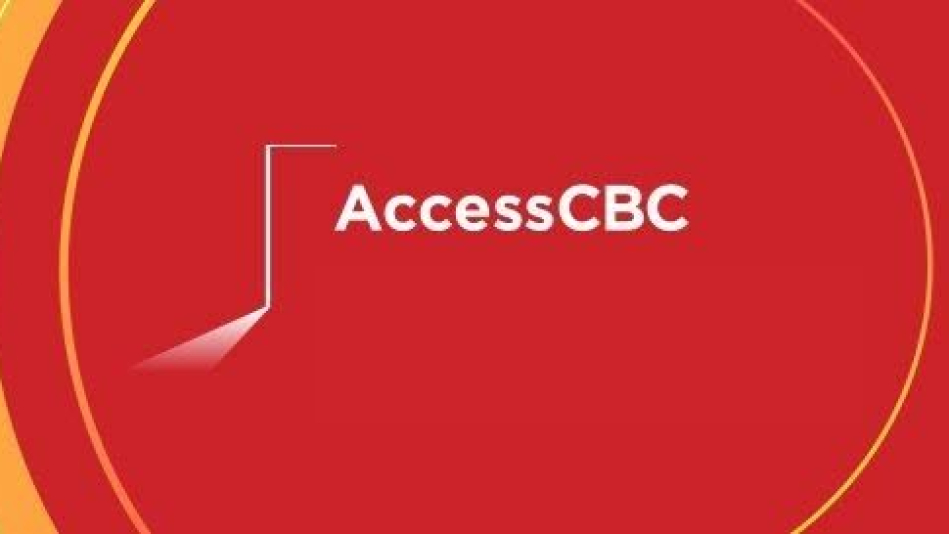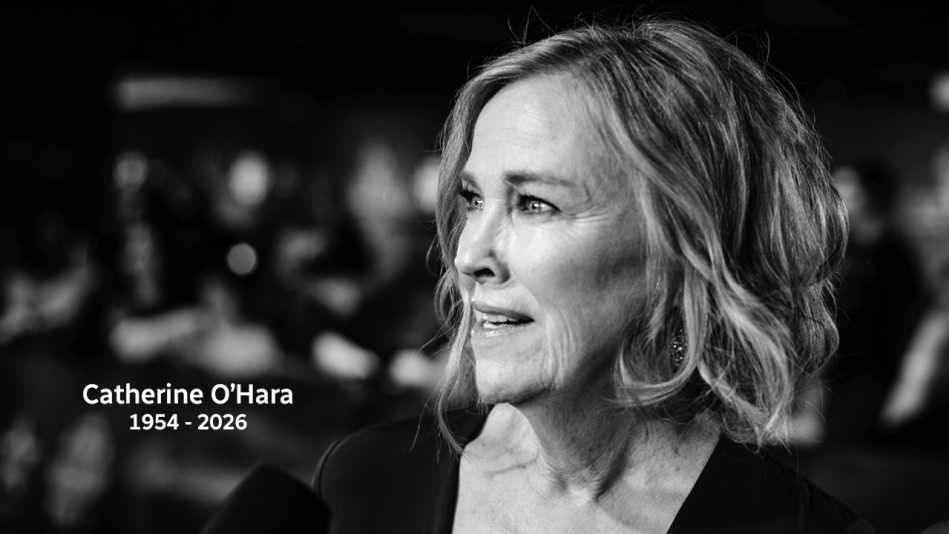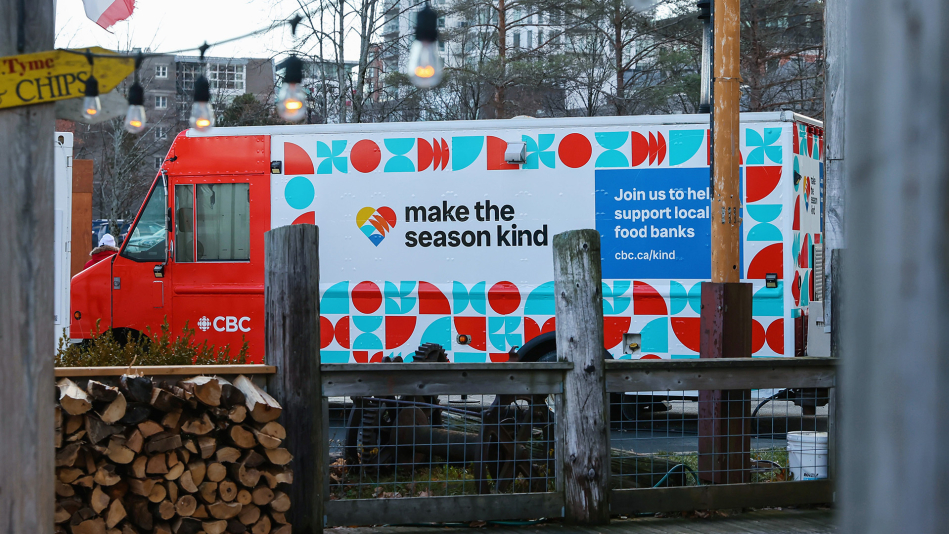CBC ANNOUNCES THIRD ROUND OF AccessCBC PROGRAM FOR CREATORS WITH A DISABILITY, IN COLLABORATION WITH THE DISABILITY SCREEN OFFICE
For the third edition, AccessCBC adds a new podcast stream alongside returning scripted, unscripted and kids program areas
Call for submissions to the national program, offering pre-development training, mentorship and financing support to Deaf and disabled creators, open now through Friday, June 20
May 28, 2025 - With National AccessAbility Week (May 25-31) underway, CBC today announced the third round of AccessCBC: A CBC Initiative for Creators with a Disability, a national program for Deaf and disabled creators that will provide training, mentorship and financing support through four programming streams - scripted comedy/drama, unscripted, kids and, new this year, podcasts. For the third iteration of AccessCBC, CBC is once again collaborating with the Disability Screen Office (DSO), a national not-for-profit organization that works with the Canadian screen industry to eliminate accessibility barriers and foster authentic and meaningful disability representation throughout the sector. Program guidelines are available now on the AccessCBC site and applications for the scripted, kids and podcast streams will be accepted now through Friday, June 20 at 11:59 p.m. PT.
“We remain committed to developing content featuring perspectives and experiences that reflect all Canadians, in formats all audiences can access,” said Sally Catto, General Manager, Entertainment, Factual & Sports, CBC. “By continuing our collaboration with the Disability Screen Office, we are able to expand our support for emerging Deaf and disabled creators in an ongoing effort to remove barriers, ignite careers, and offer more inclusive, engaging, and authentic content across CBC platforms.”
“We are proud to once again partner with CBC on AccessCBC, a program that continues to open doors for Deaf and disabled creators across Canada,” said Winnie Luk, Executive Director, Disability Screen Office. “This third round not only builds on the momentum of the past two years, but also expands into new creative territory with the addition of a podcast stream, reflecting the diversity of voices and formats where disabled talent can thrive. At the DSO, we’re committed to creating meaningful pathways into the industry, and AccessCBC is a strong example of how collaboration can foster equity, opportunity, and authentic storytelling in the Canadian screen sector.”
The latest iteration of AccessCBC offers three streams open for submissions: scripted comedy/drama, kids and podcasts. The scripted stream will provide an opportunity for up to two selected teams who are looking to develop a drama or comedy series, each consisting of at least one producer or writer who are Deaf and/or have a disability, to participate in a pre-development training phase and mentorship. CBC executives will work closely with the creative teams and provide coaching and feedback on their concepts, ensuring they leave with practical experience as well as a polished pitch document.
The kids stream will offer up to two selected individual participants or teams (consisting of at least one producer and one writer who are Deaf and/or have a disability) a similar pre-development training phase and mentorship. The specific focus will be on short-form series, 11 minutes and under, either animated or live-action, for kids ages 4-6 or, secondarily, 6-10 years old, and across all genres, including arts and crafts, science and sports.
New for the third year of AccessCBC is a podcast stream, offering one selected individual a chance to work on CBC Podcasts’ Sickboy, to hone their audio production skills and help create up to four episodes of the existing series.
The approach for the unscripted stream in the third edition of AccessCBC will once again focus on the CBC Creator Network and provide opportunities for Deaf and/or disabled creators who are currently working with CBC to produce short digital content. They will work closely with a CBC producer who will mentor and guide them through the production process.
Submissions are open to producers and writers who self-identify as having a disability and are not employed by CBC. For both the scripted and kids streams, eligible teams must include a producer who has experience working in their field with at least two credits as producer, director, or writer of screen-based content (for the kids stream, individual applicants do not need to be a producer with past credits). For eligibility purposes, AccessCBC will follow the Accessible Canada Act’s definition of a disability: any impairment, including a physical, mental, intellectual, cognitive, learning, communication or sensory impairment — or a functional limitation — whether permanent, temporary or episodic in nature, or evident or not, that, in interaction with a barrier, hinders a person’s full and equal participation in society. Visit the AccessCBC site for submission details and more information.
Short-form videos created with the support of AccessCBC are now available as a playlist on YouTube.
-30-
About CBC/Radio-Canada
CBC/Radio-Canada is Canada’s national public broadcaster. Through our mandate to inform, enlighten and entertain, we play a central role in strengthening Canadian culture. As Canada’s trusted news source, we offer a uniquely Canadian perspective on news, current affairs and world affairs. Our distinctively homegrown entertainment programming draws audiences from across the country. Deeply rooted in communities, CBC/Radio-Canada offers diverse content in English, French and eight Indigenous languages: Dëne Sųłıné, Dene Kǝdǝ́, Dene Zhatıé, Eastern Cree, Dinjii Zhuʼ Ginjik, Inuktitut, Inuvialuktun and Tłı̨chǫ. We also deliver content in Spanish, Arabic, Chinese, Punjabi and Tagalog, as well as both official languages, through Radio Canada International (RCI). We are leading the transformation to meet the needs of Canadians in a digital world.
About the Disability Screen Office
The Disability Screen Office is a national, bilingual, disability-led not-for-profit organization dedicated to developing opportunities for disabled creatives and advocating for a more accessible Canadian screen industry. Our vision is a screen industry that is inclusive and accessible, where disabled creatives can thrive. Our goals include building relationships and fostering connections among disabled creatives working or aspiring to work in the industry; influencing all stages of content production to remove barriers and create opportunities; and advocating for policies that support disabled creatives. Join our e-newsletter at www.dso-orphe.ca.
For media inquiries, please contact:
Frances Bedford, CBC PR






